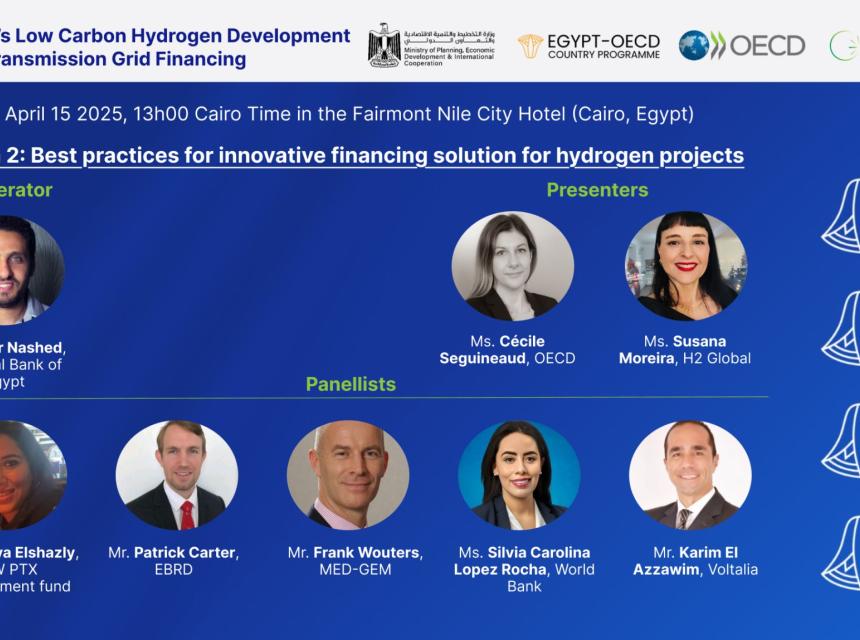Hydrogen needs tender loving care
Hydrogen needs tender loving care
Frank Wouters, Director of the MED-GEM Network, took part in the Egypt Low Carbon Hydrogen Development and Transmission Grid Financing Workshop held on 15 April in Cairo, under the OECD Clean Energy Finance and Investment Mobilisation (CEFIM) Programme.
Speaking during the high-level panel on “Best practices for innovative financing solutions for hydrogen projects”, Wouters emphasised that effective hydrogen policy must be built on what he called “TLC”: transparency, longevity, and certainty. He underlined the need for policy frameworks that are clear, consistent, and accessible not only to investors but also to the public, to ensure broad support and long-term success. His intervention reinforced the importance of EU-Mediterranean cooperation to unlock investment and develop sustainable financing models aligned with Egypt’s green hydrogen ambitions and the EU’s commitment to a fair and inclusive energy transition.
To his second point, Wouters explains that supportive regulation is often linked to electoral cycles, leading to start-stop subsidies, making it difficult for the private sector to commit to a certain country for the long run. He mentioned the German Renewable Energy Act as a good example of a supportive policy that survived several new governments in Germany. Lastly, supportive policies need to be certain; the current ongoing debate about hydrogen regulation in the European Union and potential changes thereof are causing a wait and see attitude by investors.
Wouters furthermore elaborated on the important role of strong national champions, when introducing a new technology or feedstock such as hydrogen. He mentioned MASEN in Morocco, and HYDROM in Oman as two good examples of how a government understands the significance of a new sector, takes charge and creates a national champion to orchestrate the change. The results in Morocco and Oman have been access to (concessional) finance, a structured approach to land allocation, and the provision of common use infrastructure.
Ms. Moongyung Lee, Policy Analyst and Coordinator, (OECD CEFIM Egypt) showed the results of the good work in their national consultation efforts, specifically targeting the private sector. There is not always a good match between policy offerings, and mechanisms desired by the private sector. An ongoing dialogue is therefore important to continuously improve the sector going forward. Mr. Ahmed El Beltagui, Programme Manager at the EU delegation in Egypt explained the various financial support mechanisms made available by the European Commission. Ms. Silvia Carolina Lopez Rocha, Consultant, Energy and Extractives at the World Bank and Mr. Patrick Carter from the EBRD provided insights in how international finance institutions are supporting Egypt's efforts and Mr. Karim Elazzawi, Country Managing Director - Head of Egypt & Jordan at Voltalia, gave feedback from the viewpoint of a developer.

